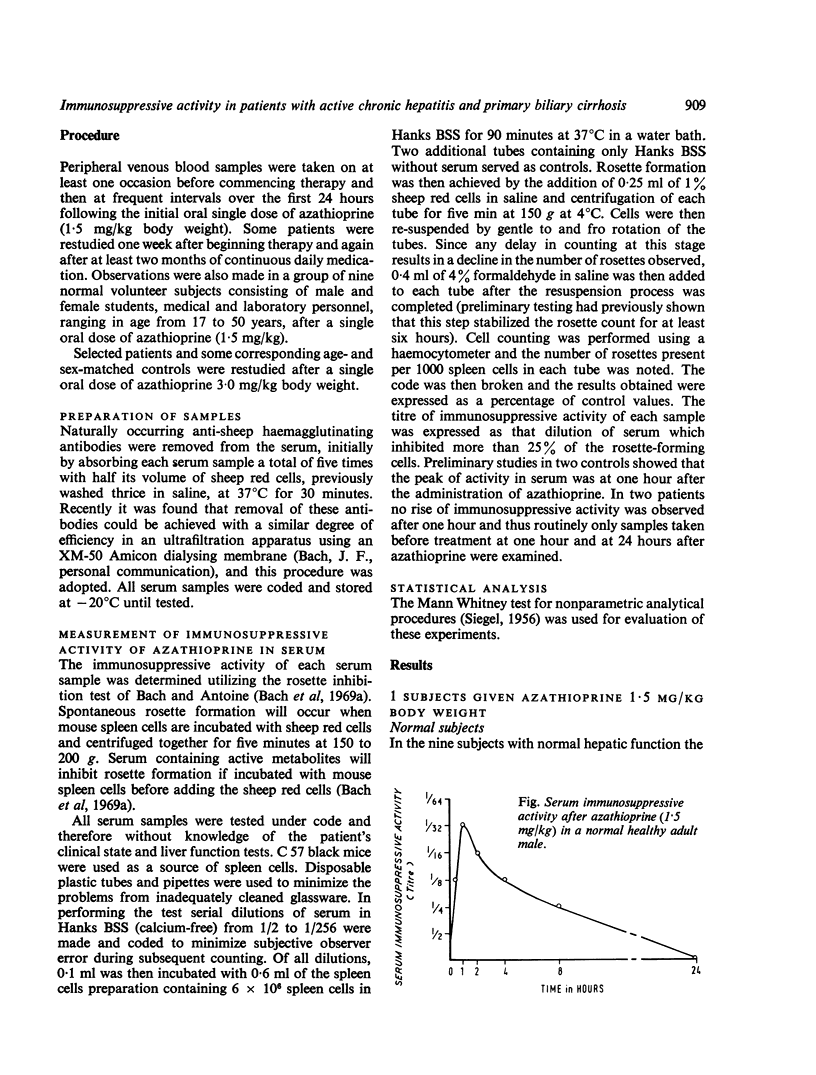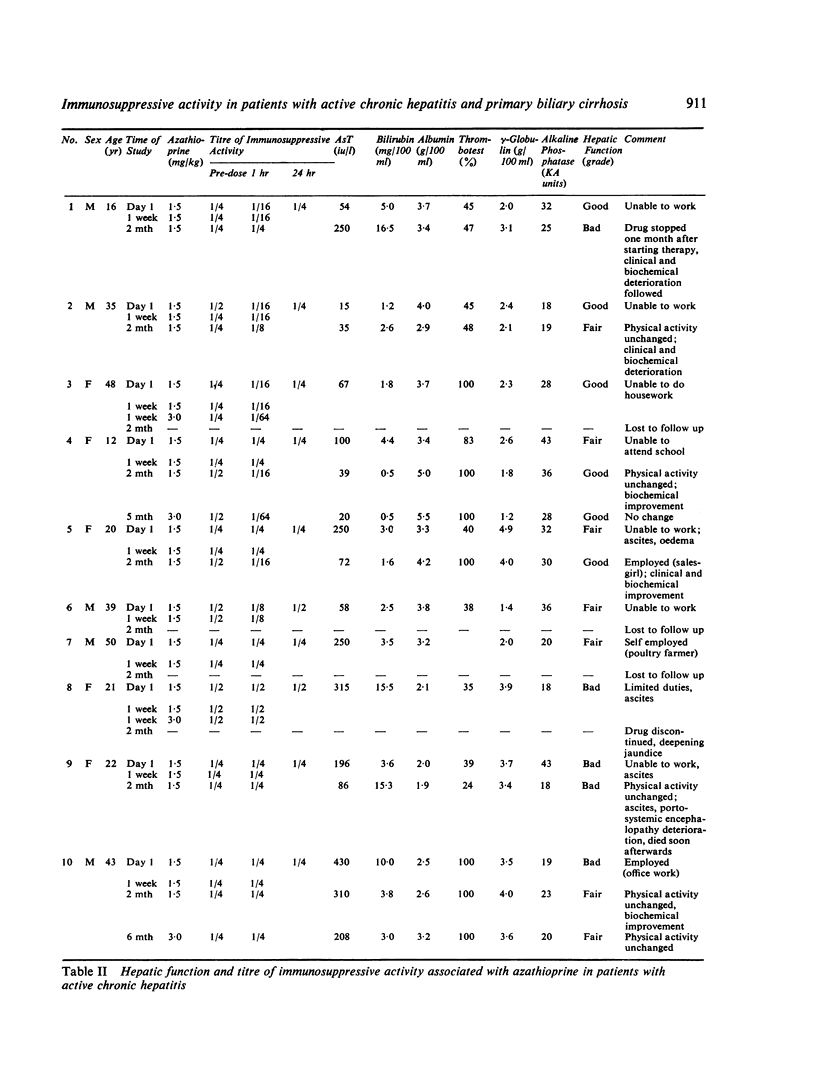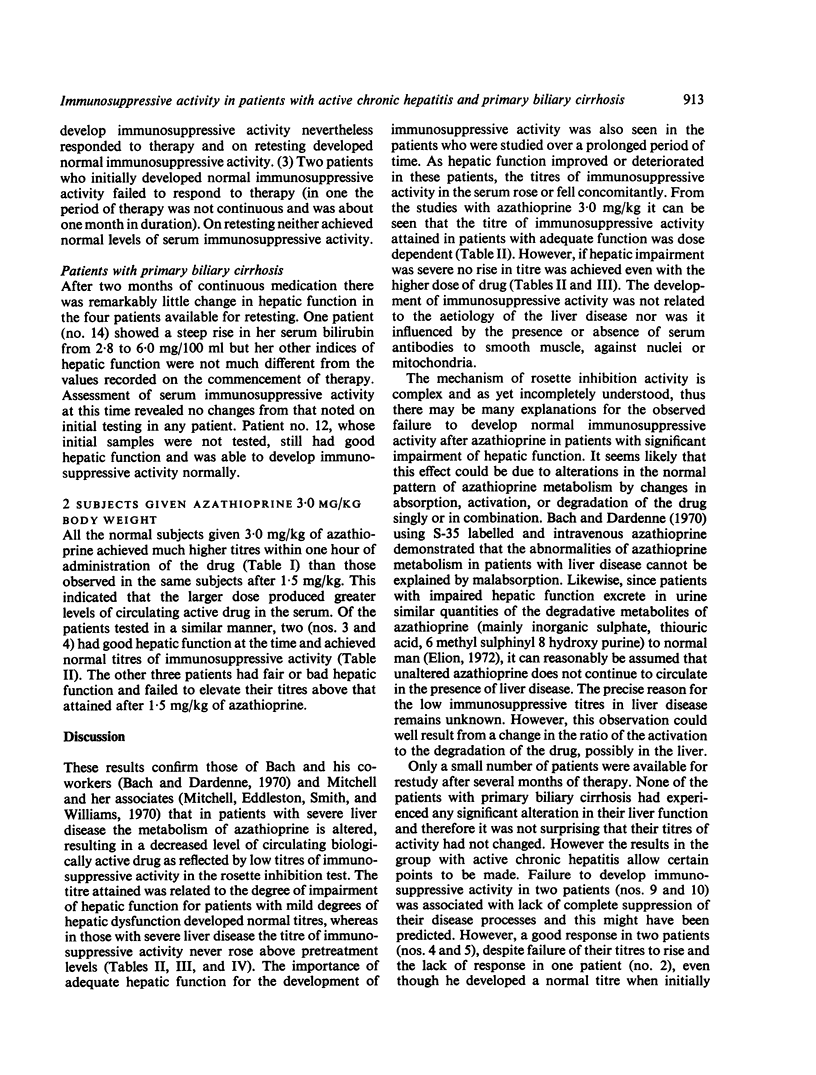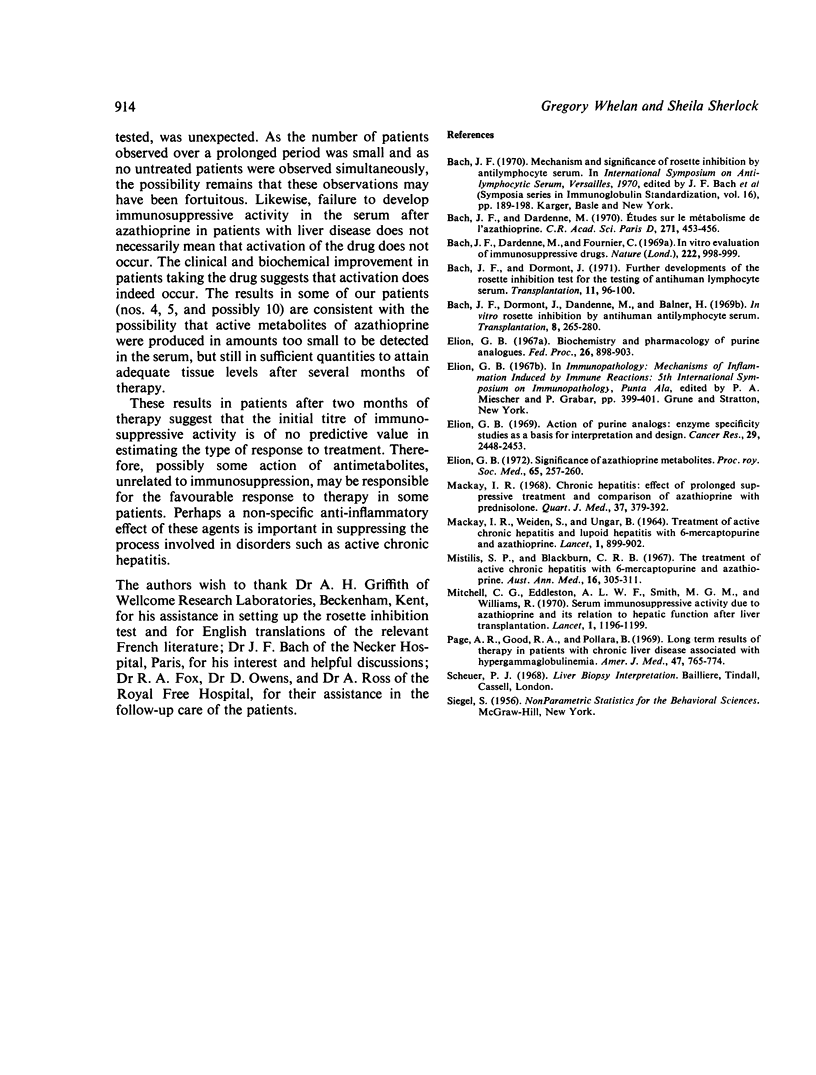Abstract
The rosette inhibition test was used to measure serum immunosuppressive activity after azathioprine (1·5 mg/kg) in 20 patients with liver disease (10 with active chronic hepatitis, six with primary biliary cirrhosis, and four with miscellaneous hepatic disorders) and in nine healthy normal volunteers. Where possible testing was repeated after one week and after at least two months of treatment. The titre of immunosuppression was related to the degree of impairment of hepatic function, and was found to be low in those with severe and normal in those with mild disturbance of hepatic function. Titres were unrelated to the presence of immunological abnormalities such as smooth muscle antibodies. In patients treated for at least two months there was no relationship between the initial titre of immunosuppressive activity and the response to treatment. Thus some patients improved despite failure to develop immunosuppressive activity, while others deteriorated even though immunosuppressive activity was normal when first studied. The development of immunosuppressive activity after azathioprine seems to be dependent on adequate hepatic function and the favourable response of some patients with liver disease to the drug may not be due entirely to immunosuppression.
Full text
PDF







Selected References
These references are in PubMed. This may not be the complete list of references from this article.
- Bach J. F., Dardenne M. Etudes sur le métabolisme de l'azathioprine. C R Acad Sci Hebd Seances Acad Sci D. 1970 Jul 27;271(4):453–456. [PubMed] [Google Scholar]
- Bach J. F., Dormont J., Dardenne M., Balner H. In vitro rosette inhibition by antihuman antilymphocyte serum. Correlation with skin graft prolongation in subhuman primates. Transplantation. 1969 Sep;8(3):265–280. doi: 10.1097/00007890-196909000-00008. [DOI] [PubMed] [Google Scholar]
- Bach J. F., Dormont J. Further developments of the rosette inhibition test for the testing of antihuman lymphocyte serum. Transplantation. 1971 Jan;11(1):96–100. doi: 10.1097/00007890-197101000-00016. [DOI] [PubMed] [Google Scholar]
- Elion G. B. Actions of purine analogs: enzyme specificity studies as a basis for interpretation and design. Cancer Res. 1969 Dec;29(12):2448–2453. [PubMed] [Google Scholar]
- Elion G. B. Significance of azathioprine metabolites. Proc R Soc Med. 1972 Mar;65(3):257–260. [PMC free article] [PubMed] [Google Scholar]
- Elion G. B. Symposium on immunosuppressive drugs. Biochemistry and pharmacology of purine analogues. Fed Proc. 1967 May-Jun;26(3):898–904. [PubMed] [Google Scholar]
- MACKAY I. R., WEIDEN S., UNGAR B. TREATMENT OF ACTIVE CHRONIC HEPATITIS AND LUPOID HEPATITIS WITH 6-MERCAPTOPURINE AND AZOTHIOPRINE. Lancet. 1964 Apr 25;1(7339):899–902. doi: 10.1016/s0140-6736(64)91627-7. [DOI] [PubMed] [Google Scholar]
- Mackay I. R. Chronic hepatitis: effect of prolonged suppressive treatment and comparison of azathioprine with prednisolone. Q J Med. 1968 Jul;37(147):379–392. [PubMed] [Google Scholar]
- Mistilis S. P., Blackburn C. R. The treatment of active chronic hepatitis with 6-mercaptopurine and azathioprine. Australas Ann Med. 1967 Nov;16(4):305–311. doi: 10.1111/imj.1967.16.4.305. [DOI] [PubMed] [Google Scholar]
- Mitchell C. G., Eddleston A. L., Smith M. G., Williams R. Serum immunosuppressive activity due to azathioprine and its relation to hepatic function after liver transplantation. Lancet. 1970 Jun 6;1(7658):1196–1199. doi: 10.1016/s0140-6736(70)91786-1. [DOI] [PubMed] [Google Scholar]
- Page A. R., Good R. A., Pollara B. Long-term results of therapy in patients with chronic liver disease associated with hypergammaglobulinemia. Am J Med. 1969 Nov;47(5):765–774. doi: 10.1016/0002-9343(69)90169-7. [DOI] [PubMed] [Google Scholar]


